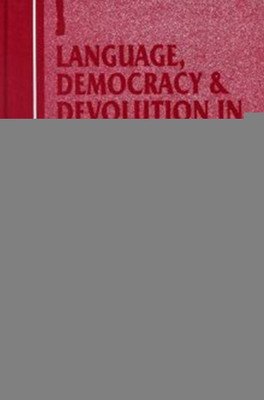Language, Democracy and Devolution in Catalonia(English, Hardcover, unknown)
Quick Overview
Product Price Comparison
The issue of human rights becomes very complex when applied to language. 'Individual' rights have little meaning in this domain. People do not ask for the right to speak to themselves, they ask for the right to use their language within their group. Where populations are heterogenous, such rights are difficult to ensure. Language can be a powerful means of inclusion and exclusion and this is particularly true in democratic societies where debate is central to the process. This book looks at these fundamental questions in the context of Catalonia. Miguel Strubell, director of the Institut de Sociolinguistica Catalana, argues that the future of Catalan is insecure and that in a situation where a political dictatorship has been replaced by an economic dictatorship (the free market) this demographically weak language needs a firm pro-active policy if it is to survive and thrive. He believes that it is quite possible for the liberal tradition to make allowance for group rights. In their responses to his paper, John Rex, Dieter Haselbach, Alan Yates, Diarmait Mac Giolla Chriost, Dennis Smith, David Atkinson and Stephen Barbour discuss the anomalies that the recatalanisation of public life is causing. There is sympathy for both groups in Catalonia: for the Catalans, proud of a rich cultural tradition, who held to their language through periods of intense repression, and who feel justified in the recatalanisation of Catalonia, and, at the same time, for the Castilian-speaking community who have become de facto immigrants with all the problems that linguistic and cultural displacement brings, and this without ever having made the choice to emigrate.


